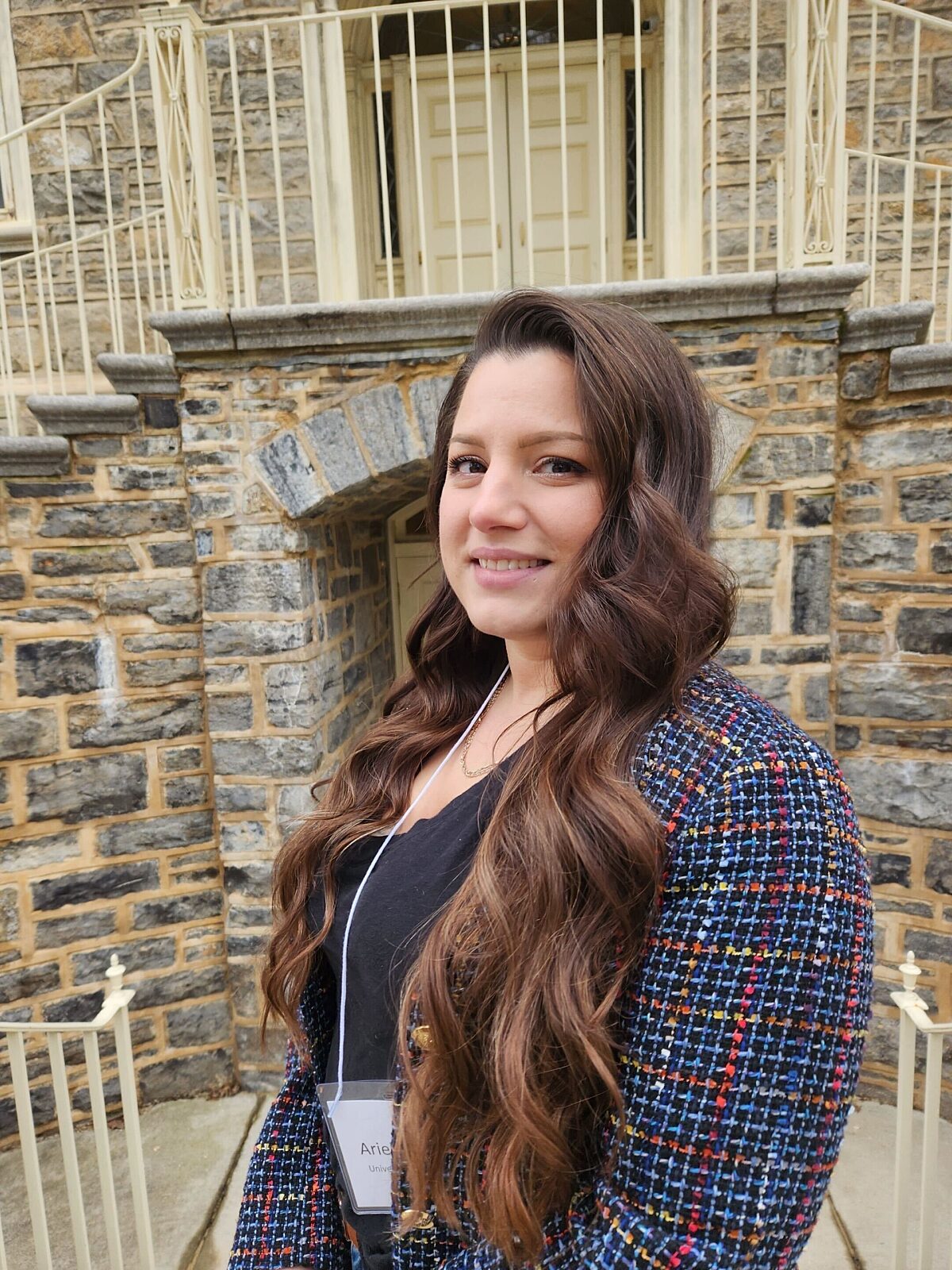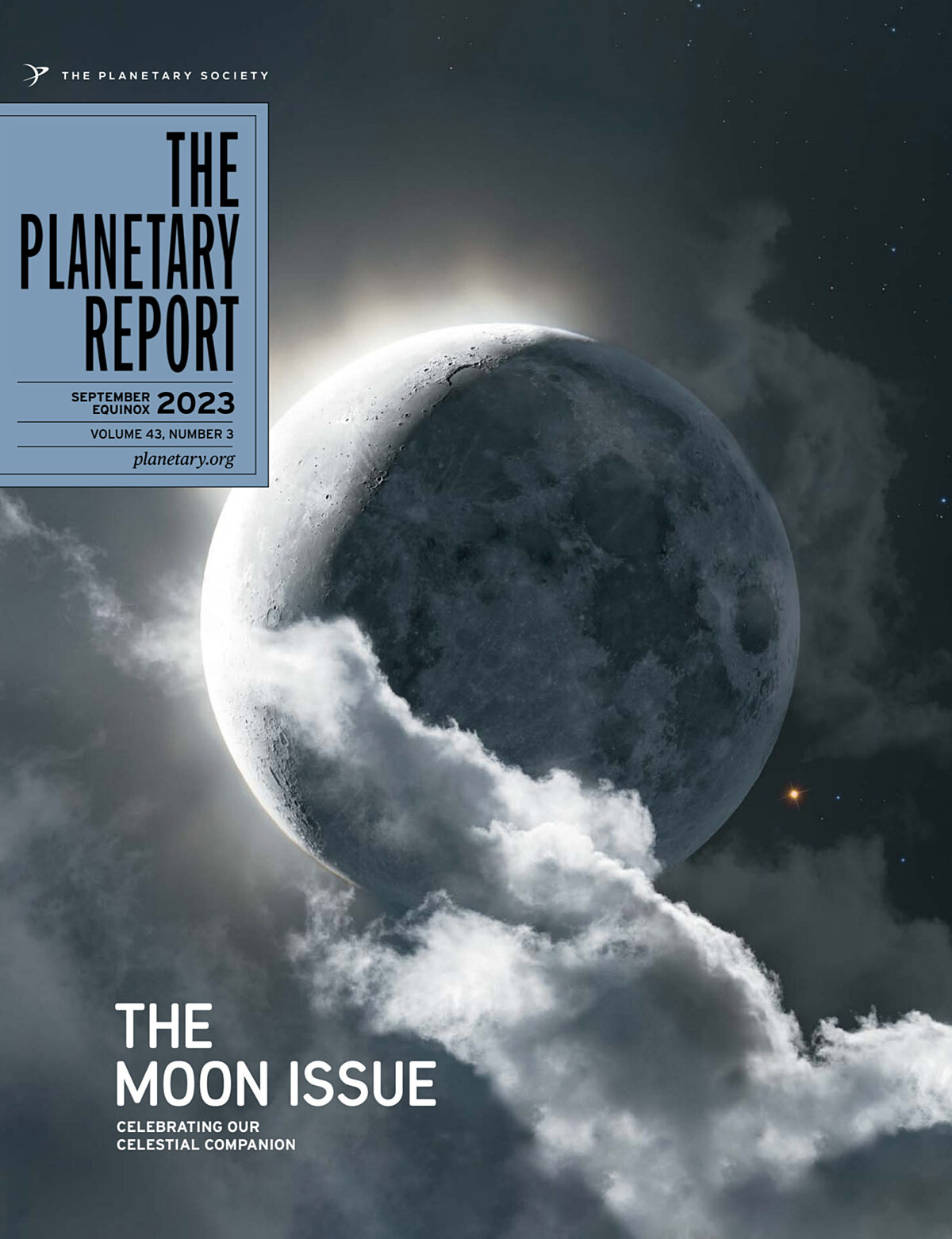Your impact: September equinox 2023
Asteroid hunters thrive with support from Planetary Society members
Thanks to the support of our members, we’re thrilled to announce the newest winners of our Shoemaker Near-Earth Object (NEO) Grant program, named after pioneering planetary geologist Gene Shoemaker. Shoemaker Grants support very advanced amateur astronomers around the world in their efforts to find, track, and characterize near-Earth asteroids.
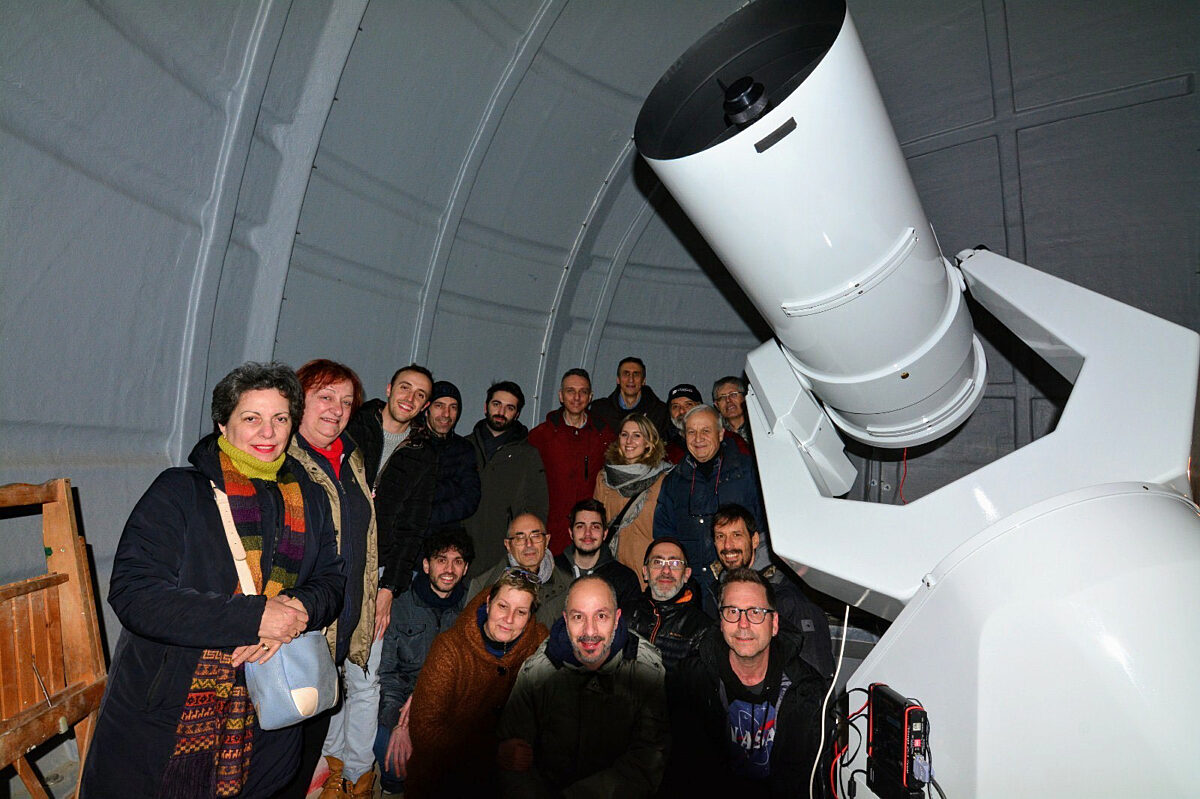
Fabrizio Bernardi and observatory director Maura Tombelli of Gr.A.M. (Gruppo Astrofili Montelupo — a large group of amateur astronomers) at the Beppe Forti Observatory in Italy are awarded $9,672 for a filter wheel, UBVRI filters, a light pollution filter, a star guider, and an adaptive optics component to add to the CMOS camera that was purchased with a 2021 Shoemaker NEO Grant. This combination will increase the capabilities of the observatory to track fainter NEOs discovered by the professional surveys and to facilitate better characterization.
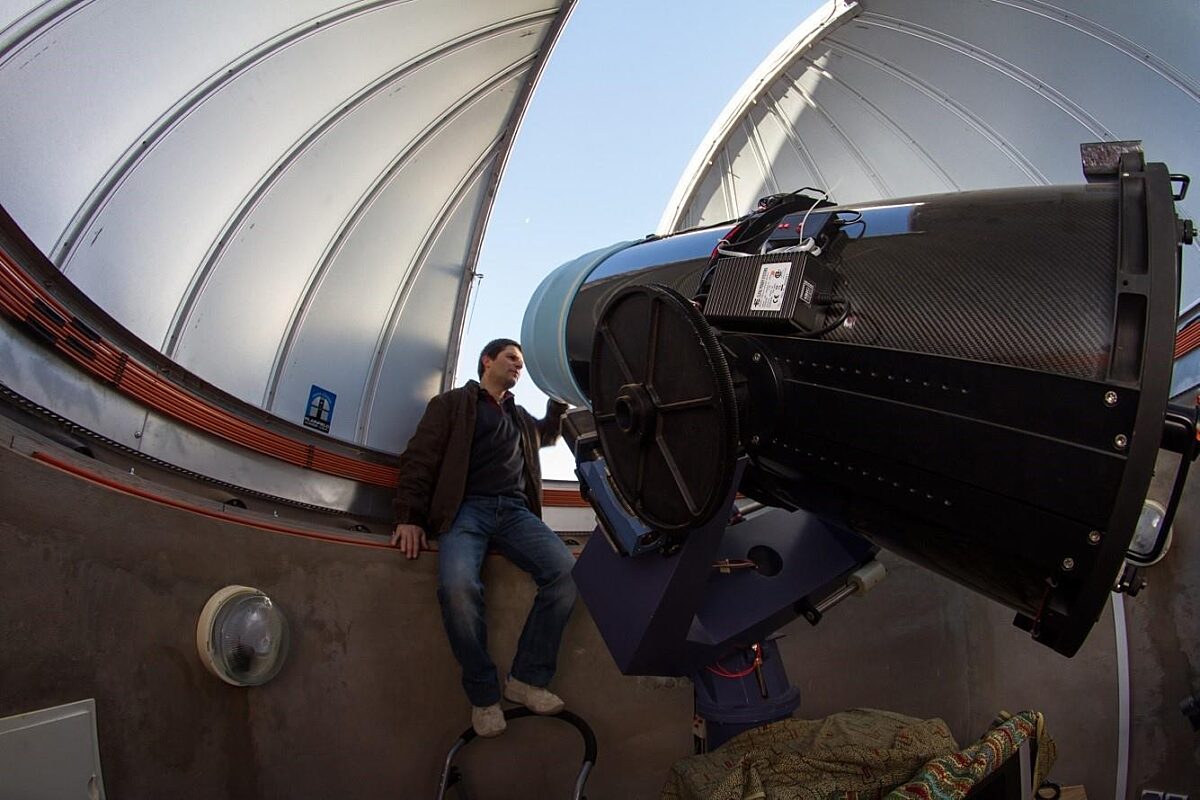
Michel Ory of Switzerland as part of the Swiss-French amateur Morocco Oukaimeden Sky Survey (MOSS) is awarded $5,055 to purchase a new CMOS camera for their observatory in the High Atlas Mountains of Morocco. The camera will improve their sensitivity and efficiency to do follow-up tracking observations of dimmer NEOs. Ory and Claudine Rinner operate the 50-centimeter (20-inch) MOSS telescope at an elevation of 2,750 meters (9,022 feet). Since opening in 2011, they have submitted more than 1 million astrometric measurements. They were also awarded a 2017 Shoemaker NEO Grant.
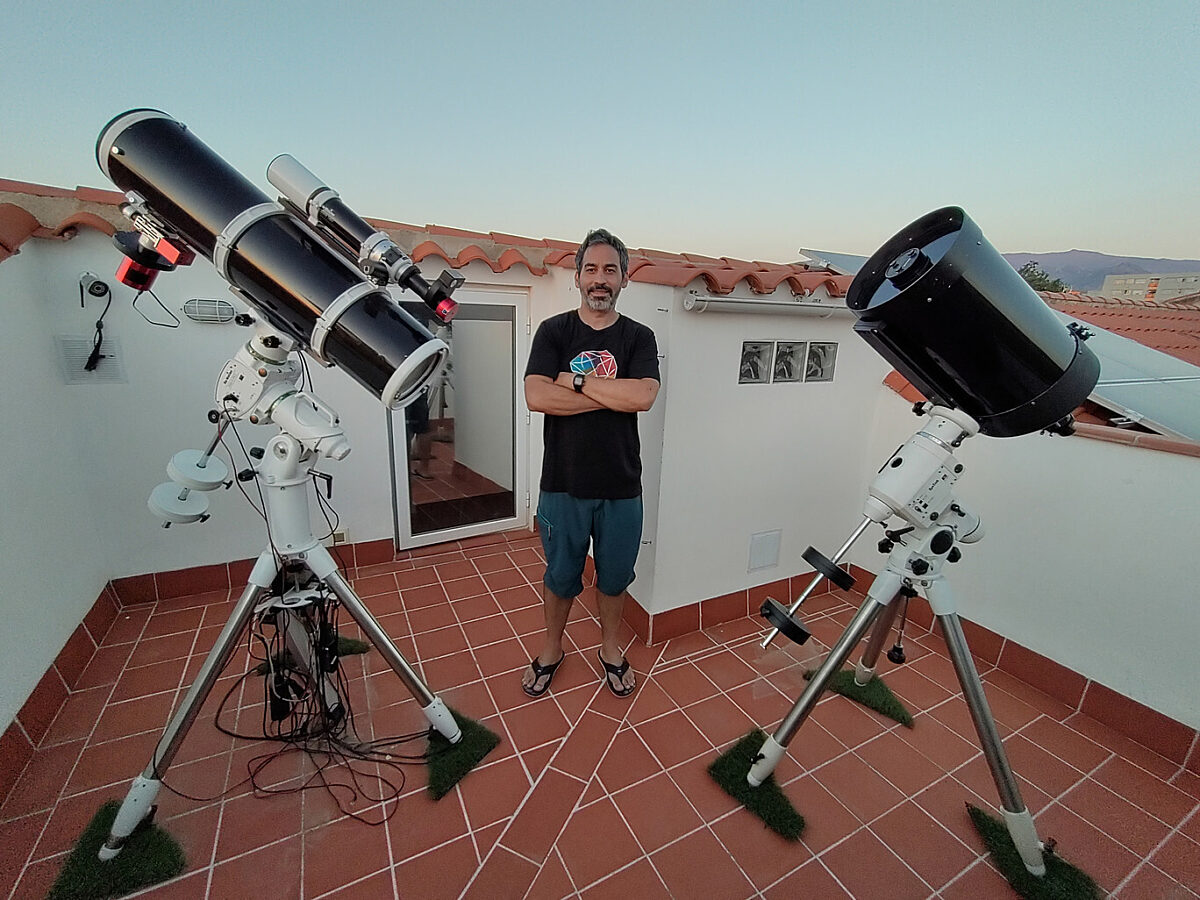
Miguel Sanchez Gonzalez of Spain along with Sergio Alonso, Antonio R. Reche, Javier Flores, and Alexis Castillo as part of amateur astronomy group Sociedad Astronomica Granadina is awarded $6,200 for a telescope mount, camera, and dew heater. They observe stellar occultations by NEOs (when the NEO passes in front of a star), often with mobile telescopes moved to locations where a given event can be observed. These observations provide precise astrometry and can also help infer asteroid sizes and shapes. The upgrades will allow observation of longer occultation events and will improve sensitivity.
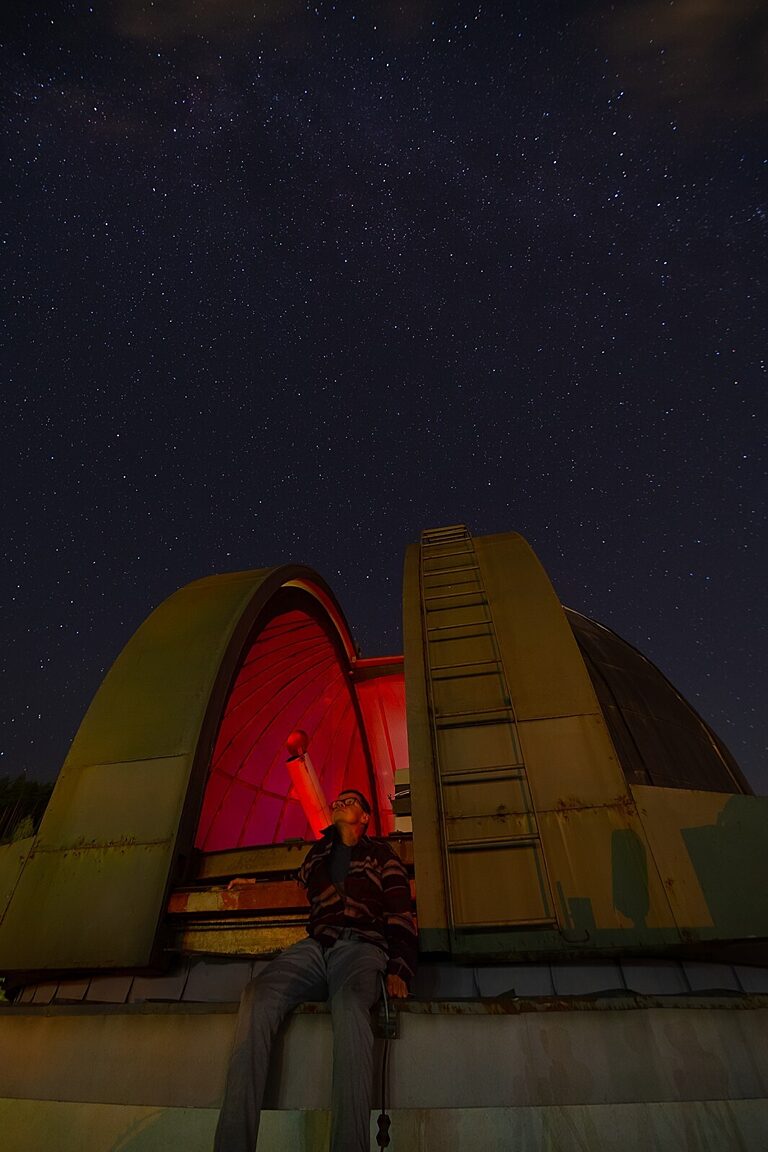
Marian Urbanik in Slovakia is awarded $6,100 for a new camera and field rotator for use in follow-up astrometry as well as photometry at Kysuce Observatory. With a wider field of view and greater sensitivity, the new setup will enable increased precision in photometry and in NEO follow-up tracking as well as enabling tracking of faster (closer) NEOs.
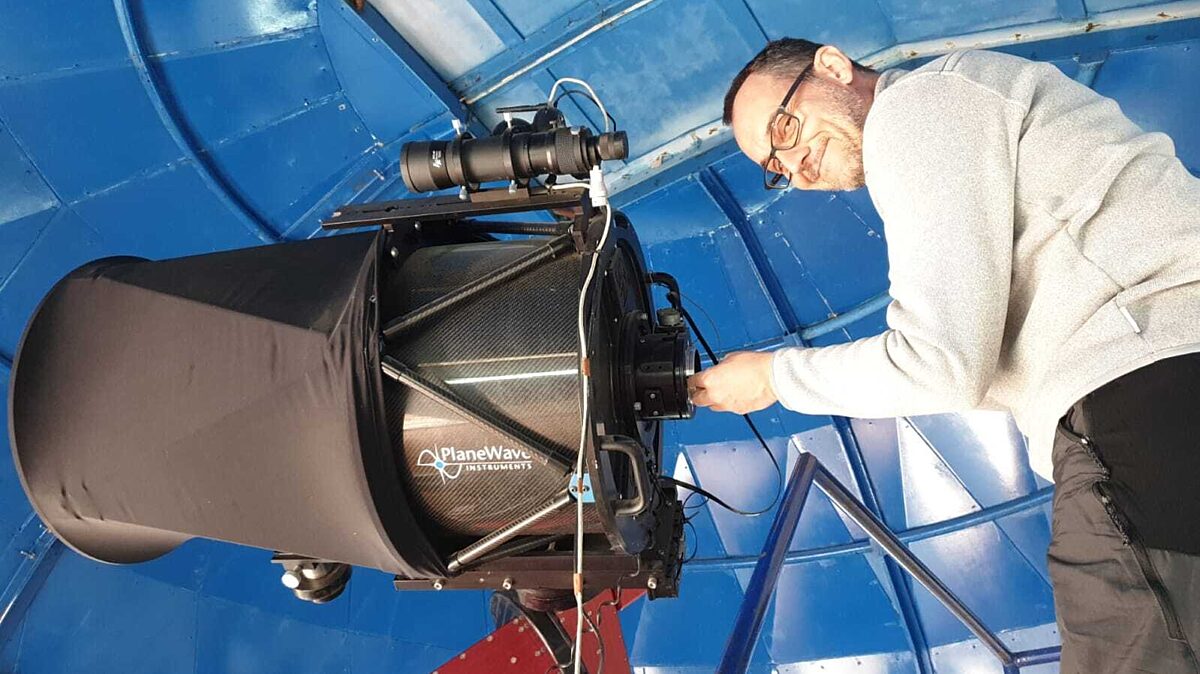
Gonzalo Fornas of Spain along with Álvaro Fornas, Enrique Arce, Rafael Barberá, and Fernando Huet, all of the 300-member amateur astronomers’ organization Asociación Valenciana de Astronomia (AVA), are awarded $8,067 for a camera, an off-axis guider, a filter wheel, and a guiding camera. This will replace the camera on their 43-centimeter (17-inch) telescope. The new setup will improve follow-up tracking of fainter and faster asteroids.
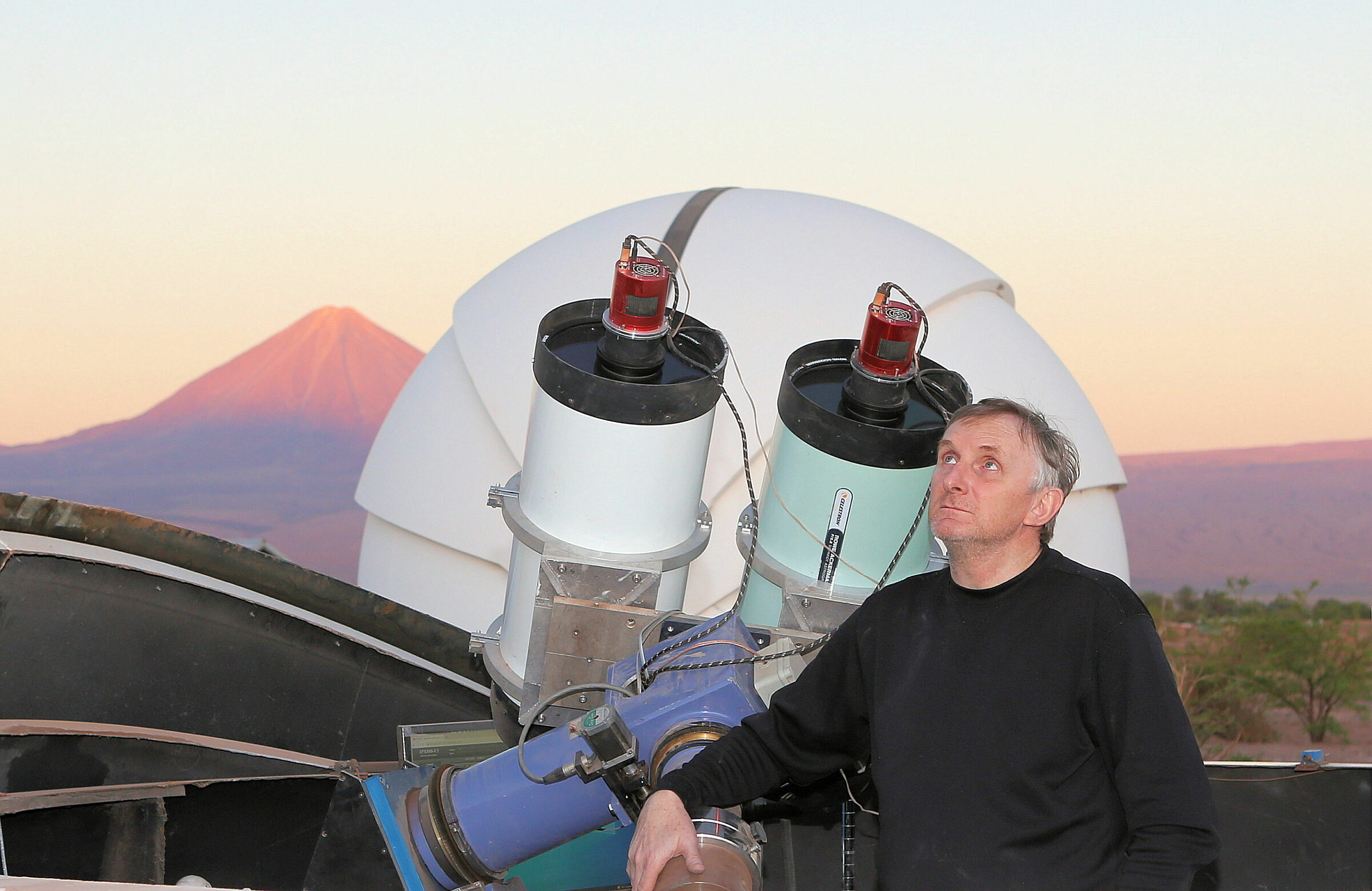
Alain Maury of the MAP survey in Chile, working with Georges Attard and Florian Signoret in France and Daniel Parrot in the United States, are awarded $8,000 for two CMOS cameras for two new telescope setups they are creating. This will increase sky coverage and therefore the number of discoveries. They have the fourth-highest discovery rate in the world, trailing only the three large NASA-funded surveys. In less than three years, they have discovered more than 140 NEOs. Their Atacama Desert location provides a very dark sky with excellent Southern Hemisphere coverage. They were also awarded a 2021 Shoemaker NEO Grant.
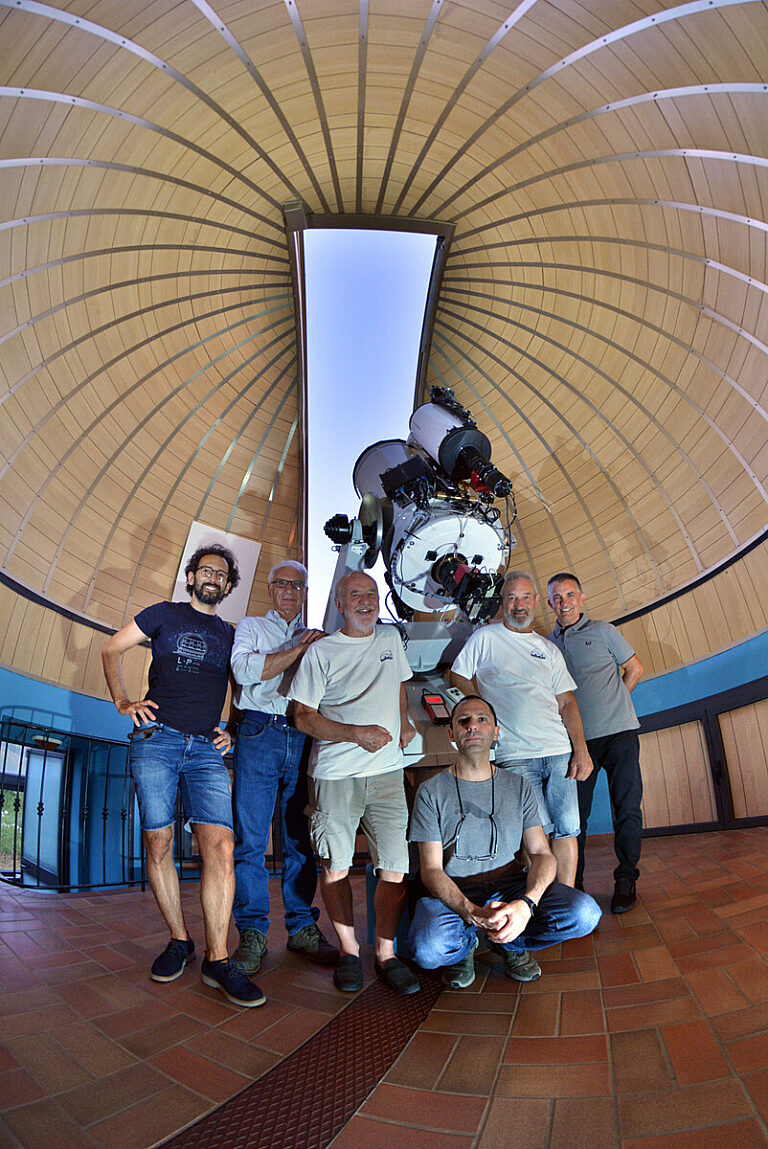
Andrea Soffiantini in Italy at the Serafino Zani Astronomical Observatory as part of UAB (Unione Astrofili Bresciani) along with Vladimiro Marinello (UAB), Gianpaolo Pizzetti (UAB), and Marco Micheli (ESA NEO Coordination Center) are awarded $13,120 for a more sensitive camera with a wider field of view, a filter wheel, and filters. These will aid their ability to respond promptly and accurately to alerts on NEOs moving quickly across the sky (so relatively nearby NEOs) and imminent impactors to help promptly define their orbital paths.
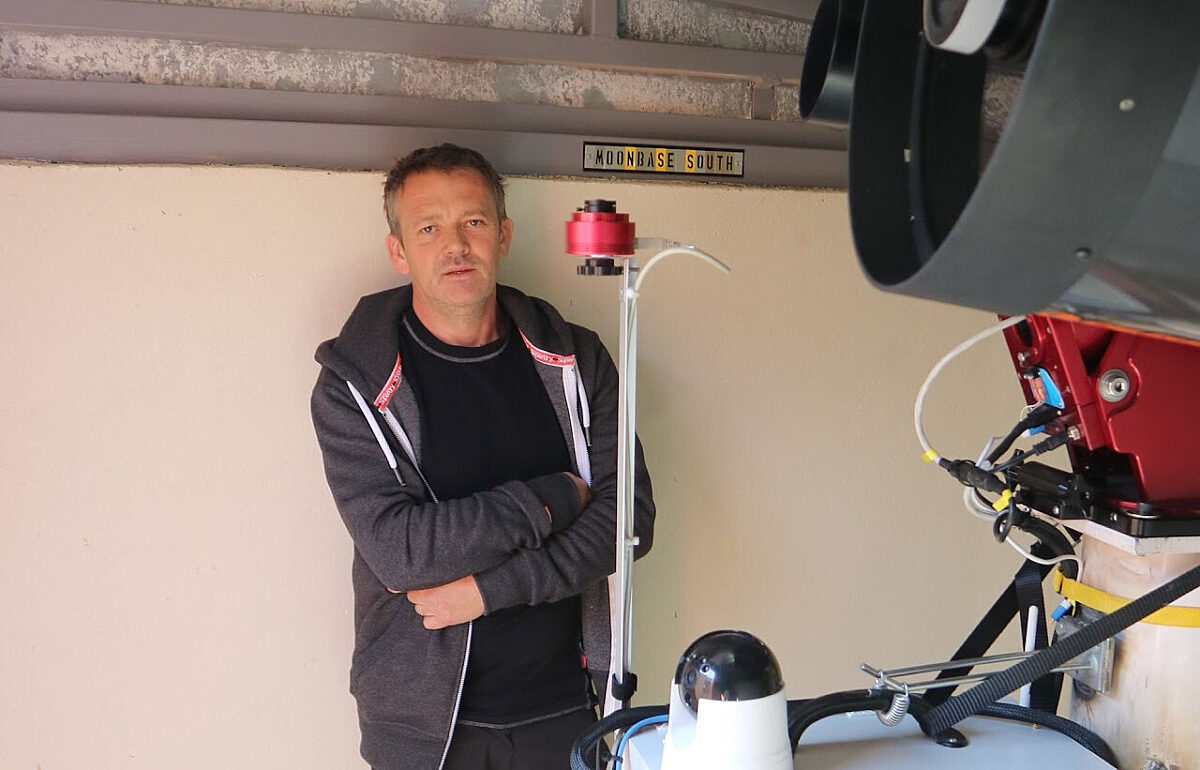
Grzegorz Duszanowicz of Sweden is awarded $12,220 for a camera, corrector lens, computer, and software to upgrade and devote a second telescope to NEO discovery and follow-up observations from the Moonbase South Observatory in Namibia. Starting their NEO project with one telescope, Duszanowicz’s team discovered 17 NEOs in only eight months. They hope the additions will more than double their discoveries and enable observations of dimmer objects. Their Namibian location has extremely dark skies and lots of clear nights and helps fill a geographical gap in NEO observations.
The 5 days of Asteroid Week
#AsteroidDay took place on June 30, but a single day was not enough for us! We spent a week celebrating the mysteries and missions related to understanding these tiny worlds, through social media, the web, our podcast, and video.
Asteroid Day, a UN-sanctioned global awareness campaign, takes place every year on June 30 — the anniversary of the Tunguska event in 1908, the most harmful known asteroid-related event in Earth’s recent history. Asteroid Day’s mission is to inspire, engage, and educate the public about asteroid opportunities and risks. The Planetary Society is a proud partner. Go to asteroidday.org to learn more.
Bringing planetary defense expertise to the palm of your hand
In our member community app, we held a members-only webinar with Planetary Society Chief Scientist Bruce Betts to discuss the latest updates around protecting Earth from dangerous asteroids and comets. The webinar took place during our campaign to raise support for our Shoemaker Grant program, and we’re pleased to announce that thanks to you, we raised more than $103,000. Watch the full recording at community.planetary.org.
Meet our 2023 Zed Factor fellow
The Planetary Society once again partnered with the Zed Factor Fellowship, which aims to empower and engage aspiring aerospace professionals from underrepresented backgrounds through hands-on, practical experiences working for and contributing to the leading companies of the aerospace community. This summer, University of Pittsburgh Natural Sciences graduate Ariel Barreiro joined us to develop her skills in pursuit of her goal to work in space science communication. Read an interview with Ariel at planetary.org/zedfactor2023.
The Planetary Society is fighting for victory for VERITAS
VERITAS, NASA’s first mission to Venus in decades, is in danger of not making it to the launch pad thanks to budget cuts from NASA. The mission would map Venus’ surface to determine the planet’s geologic history and understand why it developed so differently than Earth. Thanks to a global campaign led by The Planetary Society and our members, interest in the endangered mission to Venus has been reinvigorated. More than a thousand individual supporters penned letters to their representatives, while others shared content through various media channels, raising awareness and rallying support for the mission. Leaders from the VERITAS mission joined us for an educational presentation during our digital Day of Action; for an interview on our weekly podcast, Planetary Radio; and on Capitol Hill to meet with policymakers alongside our advocacy team. The campaign has inspired a slew of global media coverage about the mission. We’ll continue to keep you posted on our progress to achieve victory for VERITAS.
Bookworms of the universe unite!
The Planetary Society’s new book club, accessible via our digital member community, has had some stellar guests in our inaugural lineup.
APRIL Andy Weir, “Project Hail Mary”
MAY Phil Plait, “Under Alien Skies”
JUNE Ann Druyan, “Contact”
JULY Matthew Shindell, “For the Love of Mars”
AUGUST Mary Roach, “Packing for Mars”
SEPTEMBER Louis Friedman, “Alone But Not Lonely”
Each month’s read is accompanied by a live Q+A with the author. Join the book club and access previous sessions at community.planetary.org.
Let’s Go Beyond The Horizon
Every success in space exploration is the result of the community of space enthusiasts, like you, who believe it is important. You can help usher in the next great era of space exploration with your gift today.
Donate TodayThe Planetary Report • September Equinox
Help advance space science and exploration! Become a member of The Planetary Society and you'll receive the full PDF and print versions of The Planetary Report.


 Explore Worlds
Explore Worlds Find Life
Find Life Defend Earth
Defend Earth


